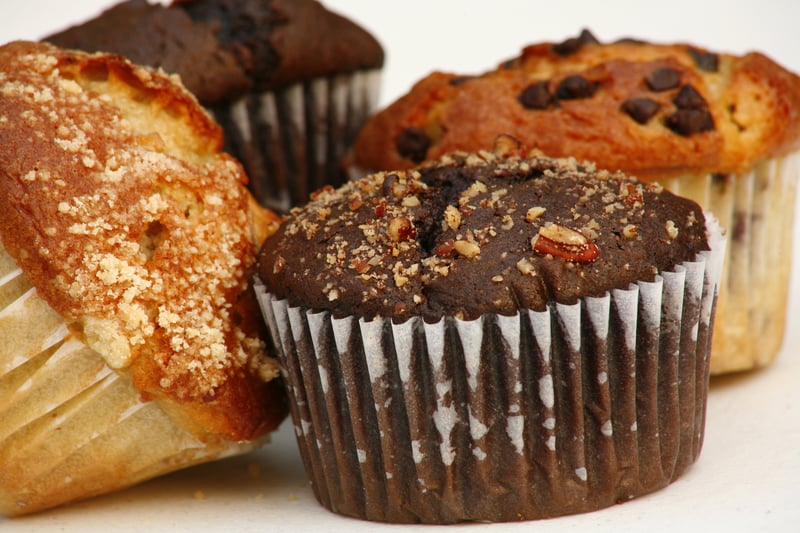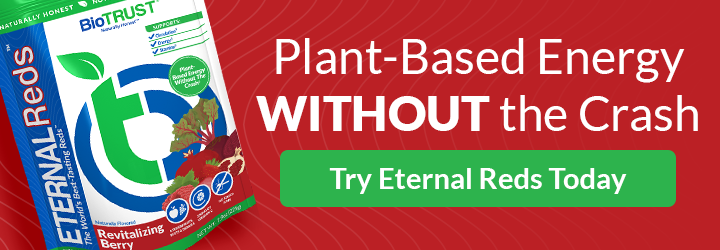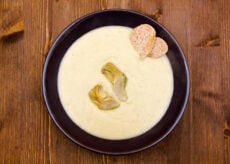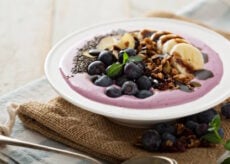Here are 5 Common Foods That Drain Energy

Ready to face your day but you’re not exactly feeling energized or fully awake? If you’re not sure what the problem is, it very well could be that you are eating foods that drain, rather than give, energy. Yes, it’s often said that “food is fuel,” and it truly is. But, you may be putting subpar fuel into a finely tuned engine (your body). This could be why you feel tired, lethargic, and even depressed. It’s time to examine what’s on your plate and get rid of the foods that drain energy, allowing you to stock up on food that will recharge and provide vitality instead.
How is Food Processed?
When you eat, your body breaks down the food into what’s called “glucose,” which is basically a sugar. This sugar is the fuel our bodies use to run all our systems and bodily functions. And yes, while the glucose provides energy to run everything, not all foods are processed equally, meaning some foods will easily and quickly break down into useable glucose (energy). In contrast, others may require our bodies to do a lot of “work” to break them down, thus draining our energy supplies. When you’re low on energy, you can experience grogginess, brain fog, irritability, cravings, and a lack of focus.
How do different foods break down? Well, sugary foods like simple carbs (e.g., sugary snacks, candy, cereals, sodas, white bread and pasta, etc.) don’t require much to break down so they do so quickly, providing a flare of energy followed by a quick slump. You might have heard of this. It’s called a “sugar high” or “sugar rush,” and it’s quickly followed by a crash in energy, usually leaving you feeling worse off than before you ate the offending foods.
Other foods that have a lot of fats are processed more slowly than the sugary foods. Things like bacon, fatty steaks, and other high-fat foods will help kill your appetite, and you may feel like you have some energy, but in reality, these fatty foods require your body to work extra hard at digesting them, and that can leave you feeling drained because it requires so many of the body’s vital resources to get the job of digestion done that it leaves no supplies when you need to tap into your energy reservoirs.
The Top 5 Foods that Drain Energy
Now you know the mechanics of food versus energy, but which foods should you limit or eliminate from your normal diet plan? Here are 5 common foods that drain energy.
1. Processed grains
Processed grains like white rice, white breads, pastas, crackers, muffins, etc. These foods have been processed to remove the fiber (in the form of shells, husk, bran, or germ) from the food. Unfortunately, these are the very things that help stabilize your blood sugar and provide roughage and satiety. That is, they keep you feeling full for longer. Instead, with processed foods, you’re left with fairly useless calories that provide neither energy nor much nutritional value and can leave you feeling drained shortly after consumption.
2. Sugary Foods
Simple sugars like candy, syrups, even honey can spike your blood sugar levels. But, the less obvious culprits like regular yogurt (not Greek yogurt, which is lower in sugar and higher in protein), cookies, and cakes, even “low-fat” goods (which are often very high in sugar to compensate for the lack of fat), and many cereals can also leave you feeling lethargic. Not only will the sugar spike your blood sugar levels, which will quickly plummet right afterward, but eating sugary foods leads to the craving for more sugary foods. It’s a slippery slope, especially when you reach for additional sugary items to combat the fatigue already caused by too much sugar.
3. Excess Caffeine and “Energy Drinks”
It may seem counterintuitive, but caffeine and energy drinks can actually have the opposite of the desired effect on you. Here’s where that really annoying word “moderation” comes into play. A little caffeine can be good when used strategically, such as right before an intense workout or when you need a jolt. However, if you’re constantly using a lot of caffeinated products, the caffeine can turn on you. Not only can you build up a tolerance to it where you’ll require more and more caffeine over time for the same effects, but it can get to the point where it ends up interrupting your sleep. Overconsumption can also increase anxiety and cause your heart to race. All of this can end up as a big energy drain.
4. Fried and Processed Foods
These foods are a virtual nightmare for your system. They are filled with unhealthy, refined fats and loads of calories that can weigh you down, slowing your digestion, retarding the absorption of nutrients, and making you feel sluggish. And because you feel so lethargic, you may even reach for more food just to try and climb out of the low energy pitfall. This, of course, just leads to more overeating in search of nutrients and a boost.
5. Fruit Juices
While it may seem like a fabulously refreshing idea at the outset, fruit juices are basically empty calories. Yes, even smoothies, while delicious, can spike your blood sugar unfavorably, draining your energy. Juices have no fiber at all, are typically calorie-heavy, often contain massive quantities of sugar, and won’t provide any long-term energy. If you must drink fruit juice, water it down. Better yet, eat the actual piece of fruit instead, or slice up the whole fruit and add it to a pitcher of water.
How to Avoid Energy Dips
1. Avoid extremes— To avoid experiencing a crash, stay away from the foods that cause extreme highs and lows in your energy levels. Instead, opt for fiber-filled, nutrient-dense foods that will digest slowly over time without putting extra stress on your digestive system.
2. Eat often— yes, multiple small meals a day can be better than one or two large meals with a lot of time in-between them. This can help keep blood sugar levels stable throughout the day, alleviating the energy slumps and keeping a steady stream of energy available to you.
3. Consider nutrients that help support stable blood sugar levels— according to research, some herbs (which can also be found in supplements) like cinnamon and berberine may help you regulate your blood sugar metabolism and process carbohydrates more effectively.




 7 Signs Your Body is Seriously Low on Collagen (not just wrinkles)
7 Signs Your Body is Seriously Low on Collagen (not just wrinkles) Health Expert: "Turmeric Doesn't Work (unless...)"
Health Expert: "Turmeric Doesn't Work (unless...)" 3 Warning Signs Your Probiotic Supplement is a Total Waste
3 Warning Signs Your Probiotic Supplement is a Total Waste

